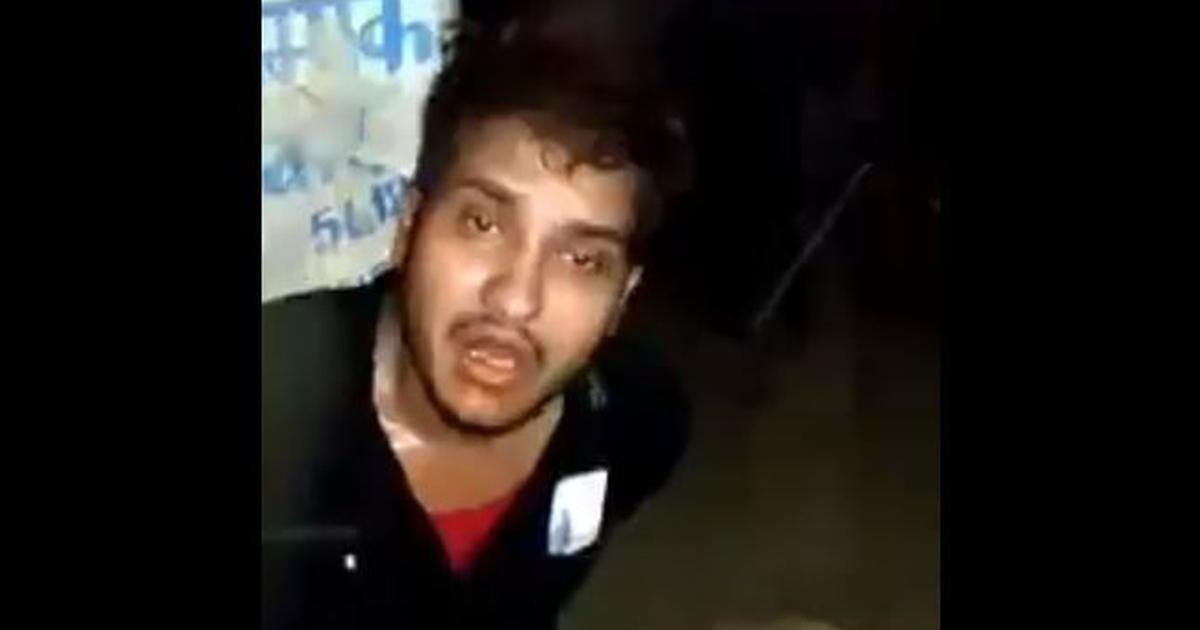On June 27, a Jharkhand court convicted ten of the thirteen people held in connection with the mob lynching of Tabrez Ansari, a 22-year-old Muslim man. The district court’s decision came nearly four years to the day after Ansari died in Jharkhand’s Sarikela-Kharsawan district in the year 2019, days after he was tied to an electricity pole, assaulted, and allegedly made to shout religious slogans in connection with a suspected theft case.
Amit Shekhar, District Judge, Additional Sessions Judge, and POCSO special judge, found the ten accused guilty of culpable homicide not amounting to murder. According to media reports, Additional Session Judge Amit Shekhar will declare the quantum of punishment on July 5. It is essential to note that one of the accused, Kushal Mahali, had died during the course of trial, and two others were acquitted for lack of evidence.
Notably, the convicted persons have been identified as: Bhim Singh Munda, Kamal Mahato, Madan Nayak, Atul Mahali, Sunamo Pradhan, Vikram Mandal, Chamu Nayak, Prem Chand Mahali, Mahesh Mahali — were taken into custody soon after they were convicted by the court, PTI reported. Prime accused Prakash Mandal, alias Pappu Mandal, was already in judicial custody, as reported by the IE.
Background of the incident:
Ansari was assaulted in the early hours of June 18, 2019, in Saraikela Kharsawan’s Dhatkidih hamlet. Ansari, who was in court detention for stealing, complained of nausea, vomiting, and chest pain on June 22 morning. As he fell unconscious, he was first taken to Sadar Hospital, and then to Tata Main Hospital in Jamshedpur, where he was pronounced dead on arrival. He worked as a labourer and welder in Pune and had come home to celebrate Eid.
A video of the incident that had emerged on social media showed a mob beating Ansari and asking him to chant religious slogans. The young man was seen chanting, and pleading with the mob to stop the assault.
The role of the police:
Police had reached the spot around 6 am and Ansari’s statement was recorded at 9.30 am, when he allegedly “admitted” committing the theft with two other men. He was subsequently arrested and booked under IPC Sections 457 (house-trespass or housebreak by night), 380 (theft), and 411 (dishonestly receiving stolen property), among others.
Ansari was subsequently taken into custody and produced before a court, which sent him to judicial remand. Three days after the assault, he fell ill and was taken to a hospital, where he died. A case was thereafter registered against the accused under IPC Sections 302 (murder) and 295-A (deliberate and malicious acts, intended to outrage religious feelings of any class by insulting its religions or religious beliefs), among others.
It is essential to note that Ansari’s family had alleged that despite several appeals, police didn’t arrange for proper treatment and family members weren’t allowed to meet him. The family also alleges that he died long before he was taken to a hospital. The family has demanded action against all concerned, including the police and the doctor; the latter has yet to be questioned.
Due to widespread rage across the country, the police had admitted to lapses and formed the SIT. Two officers, Chandramohan Oraon and Bipin Bihari, had been suspended for “not reporting the seriousness of the issue to the higher authorities” and “register a case of lynching on the very same day”, a government statement said.
The police had arrested 11 residents of Ghatkidih village for Ansari’s death and had suspended two police personnel. Months later, police faced a backlash after the charge sheet in the case was filed under IPC 304 (culpable homicide not amounting to murder). Citing the “final post-mortem report” — that Ansari died of “cardiac arrest” — the charge sheet stated that it was “not a case of premeditated murder”.
Citing a fresh medical report, police later invoked the murder charge against all the accused in a supplementary charge sheet.
Reactions to the judgment:
Speaking with the Indian Express, Additional Public Prosecutor Ashok Ray provided, “After the trial, Judge Amit Shekhar pronounced 10 persons guilty under IPC 304 (culpable homicide not amounting to murder). The judge said ingredients to convict the accused under IPC 302 (murder) were not found.”
The Indian Express also reported that Altaf Hussain, lawyer for Ansari’s wife, is “talking to the family members and will decide whether to go for an appeal”. He further said that he is confident the accused will be sentenced to life imprisonment, as was reported by The New Indian Express.
Related:
Theirs & ours, how Indian cities discriminate against Dalits & Muslims
Two Muslim youth killed in Jharkhand, one by a cop, other by a mob
Restore Murder charge in Tabrez Ansari Lynching Case demands PUCL
Nationwide protests against brutal mob lynching of Jharkhand youth Tabrez Ansari

